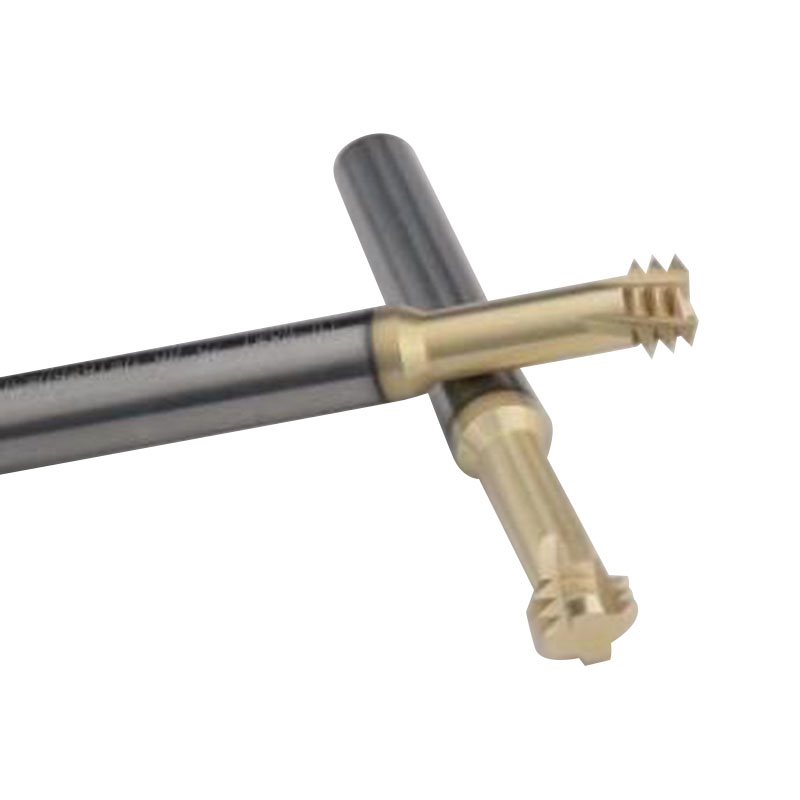
- English
- Español
- Português
- русский
- Français
- 日本語
- Deutsch
- tiếng Việt
- Italiano
- Nederlands
- ภาษาไทย
- Polski
- 한국어
- Svenska
- magyar
- Malay
- বাংলা ভাষার
- Dansk
- Suomi
- हिन्दी
- Pilipino
- Türkçe
- Gaeilge
- العربية
- Indonesia
- Norsk
- تمل
- český
- ελληνικά
- український
- Javanese
- فارسی
- தமிழ்
- తెలుగు
- नेपाली
- Burmese
- български
- ລາວ
- Latine
- Қазақша
- Euskal
- Azərbaycan
- Slovenský jazyk
- Македонски
- Lietuvos
- Eesti Keel
- Română
- Slovenski
What Are the Common Problems in Thread Milling and How to Fix Them
Thread milling is a precise and efficient method for creating threaded holes, but even experienced machinists encounter challenges. Over my 20 years in the machining industry, I’ve seen countless issues arise—some due to tool selection, others from programming or material factors. Today, I’ll break down the most common thread milling problems and provide actionable solutions. Plus, I’ll share how NERES thread mills are engineered to prevent these issues before they start.
Why Does Thread Milling Sometimes Fail
Thread milling offers flexibility, but when things go wrong, the results can be costly. Here are the top problems I’ve encountered—and how to avoid them:
1. Why Do Thread Mills Break Prematurely
Tool breakage is frustrating, especially in high-volume production. The main culprits are:
-
Excessive feed rates – Pushing too hard leads to chipping.
-
Incorrect tool path – Poor helical interpolation strains the cutter.
-
Hard materials – Some alloys require specialized coatings.
NERES Solution: Our carbide thread mills feature reinforced cores and advanced coatings like TiAlN, extending tool life even in tough materials like stainless steel.
2. How Can Poor Thread Quality Be Avoided
If your threads come out rough or out of spec, check these factors:
-
Tool deflection – A rigid setup minimizes vibration.
-
Chip evacuation – Built-up chips ruin surface finish.
-
Worn inserts – Dull edges produce inconsistent threads.
NERES Advantage: Our high-precision thread mills maintain tight tolerances (±0.01mm) thanks to Swiss-grade grinding technology.
3. What Causes Incorrect Thread Pitch
A mismatched pitch can scrap a part. Common reasons include:
-
Wrong G-code programming – Double-check helical lead calculations.
-
Machine backlash – Worn ball screws introduce errors.
-
Tool diameter mismatch – Using the wrong mill size distorts the thread form.
NERES Tip: Our threading calculators (available on our website) eliminate guesswork in programming.
NERES Thread Mills – Engineered for Reliability
To prevent these issues, we designed our thread mills with machinists in mind. Here’s what sets them apart:
Key Features of NERES Thread Mills
| Feature | Benefit |
|---|---|
| Ultra-fine carbide substrate | Resists chipping in hardened steels |
| Optimized flute geometry | Improves chip evacuation |
| Multi-layer coatings | Reduces heat and friction |
| Precision-ground profiles | Ensures consistent thread accuracy |
Recommended NERES Thread Mills for Different Materials
-
General Purpose (ISO P/M) – NTM-Series (TiCN coated)
-
Stainless Steel & Titanium – NTM-HS Series (AlCrN coated)
-
Aluminum & Non-Ferrous – NTM-AL Series (Polished flutes)
How Can You Optimize Your Thread Milling Process
Beyond using the right tool, follow these best practices:
-
Use high-quality coolant – Prevents overheating.
-
Verify machine rigidity – Loose setups cause chatter.
-
Inspect tools regularly – Replace before wear affects quality.
Need Thread Mills That Solve These Problems
At NERES, we’ve spent decades refining our thread mills to eliminate common headaches. Whether you’re machining aerospace alloys or medical components, our tools deliver precision and durability.
Contact us today for a free tooling recommendation—let’s make your next threading project flawless.



